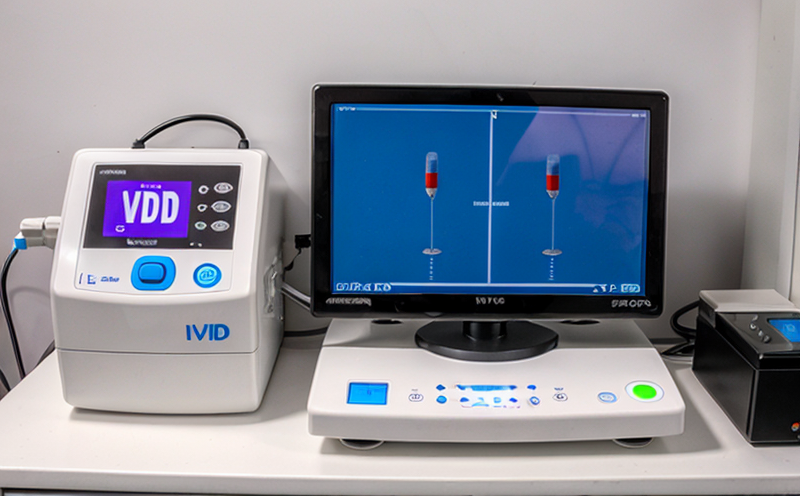Verification of Control Materials in IVD Systems
The verification of control materials in In Vitro Diagnostic (IVD) systems is a critical component of ensuring the reliability, accuracy, and consistency of diagnostic tests. Control materials serve as reference standards that help calibrate test systems, validate analytical methods, and ensure consistent performance across different batches or instruments.
These materials are used to monitor the precision and accuracy of IVD devices during production and quality control processes. Verification involves a series of laboratory tests designed to confirm that the control materials meet specified standards for purity, stability, and consistency. This process ensures that the device performs as intended under real-world conditions.
Control materials are often used in conjunction with calibration solutions or reference reagents. They can be derived from human samples, synthetic substances, or other sources depending on the specific requirements of the diagnostic test. The choice of control material is critical to ensure that the IVD system performs reliably across a wide range of conditions.
The testing process typically involves several steps, including:
- Sample preparation: Proper handling and processing of the control materials are essential to maintain their integrity and accuracy.
- Analytical validation: Tests must be conducted using the same methods that will be used in clinical settings to ensure consistency.
- Data analysis: Results from these tests are analyzed to determine whether they fall within acceptable ranges for precision, accuracy, and stability.
Verification of control materials is not just a technical exercise but also a regulatory requirement. Compliance with international standards such as ISO 17025 ensures that the laboratory conducting these tests maintains high-quality practices. In addition, adherence to FDA regulations on IVD devices is crucial for manufacturers seeking market approval.
The importance of this service cannot be overstated. Accurate and reliable control materials are essential for ensuring patient safety and effective treatment decisions. Any discrepancy in the performance of an IVD system can lead to incorrect diagnoses or ineffective treatments, which could have serious consequences for patients' health.
By providing comprehensive verification services, our laboratory helps manufacturers meet stringent quality standards while reducing the risk of errors that could compromise patient care. This service is particularly important given the increasing complexity and sophistication of modern diagnostic tools.
Why It Matters
The verification of control materials in IVD systems is fundamental to maintaining trust in medical diagnostics. When a test fails to produce accurate results, it can lead to misdiagnosis and inappropriate treatment, which may result in unnecessary suffering or even death.
Control materials are designed to provide consistent performance across different batches and instruments used in the diagnostic process. By verifying these materials, laboratories ensure that the IVD systems perform consistently with expected outcomes. This consistency is crucial for maintaining public confidence in medical diagnostics.
In addition to ensuring accuracy, verification of control materials also helps prevent errors during the manufacturing and calibration processes. Any discrepancy detected early on allows manufacturers to address issues promptly, thereby reducing the likelihood of flawed products reaching the market.
The importance of this service extends beyond individual patients; it impacts public health policies and practices as well. Accurate diagnostic tools are essential for effective disease management strategies and public health interventions. By ensuring that IVD systems perform reliably, our laboratory contributes to better healthcare outcomes on a broader scale.
Applied Standards
The verification of control materials in IVD systems is guided by several international standards aimed at ensuring the highest level of quality and reliability. These include:
- ISO 17025: This standard sets criteria for technical competence, quality management, and operational requirements for bodies providing testing and calibration services.
- FDA CFR Title 21 Part 829: These regulations outline the Quality System Regulation (QSR) for manufacturers of medical devices in the United States. Compliance with these standards is mandatory for IVD device manufacturers seeking FDA approval.
In addition to these regulatory frameworks, laboratories must also adhere to specific guidelines provided by organizations like Clinical and Laboratory Standards Institute (CLSI) for setting up and validating control materials in clinical testing environments.
Competitive Advantage and Market Impact
- Enhanced Reputation: By providing robust verification services, our laboratory enhances its reputation as a trusted provider of quality assurance solutions. This reputation attracts more clients looking to ensure the reliability of their IVD systems.
- Innovation Support: Our expertise in verifying control materials enables manufacturers to innovate confidently, knowing that they are meeting stringent quality standards. This supports continuous improvement and development of advanced diagnostic tools.
- Risk Mitigation: Early detection of potential issues through rigorous verification processes helps mitigate risks associated with product failures. This reduces the likelihood of recalls and legal challenges, protecting both manufacturers’ reputations and consumer trust.
In today’s competitive market, having a reliable partner for IVD testing is crucial. Our laboratory not only meets but exceeds industry expectations, giving our clients an edge in the marketplace.





